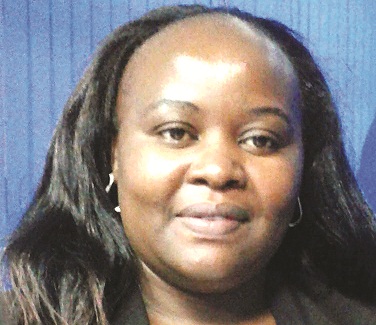KSPC has no legal mandate to set guidelines in hiring of Sacco staff
By Our Reporter
The Savings and Credit Co-operative Society (SACCO) industry has yet to develop a framework that can be used when recruiting of senior management staff or even board members.
While most of these Saccos have vetting committees, which nominates individuals to be elected to the board of directors, the committees are usually made up of persons who are not qualified in the area of human resources.
Cases are rife of individuals, who happen to own the highest number of coffee trees or tea bushes, being elected as directors in many farmers’ co-operative societies.
It is only those societies with deep pockets that hire HR consultants when recruiting the Chief Executive Officer and other senior managers, including the critical finance officer.
Although a professional body for the Co-operatives sector is already in place, it is yet to recruit the required membership. At present, this body still lack the legal mandate to set guidelines and structures that any Sacco must adhere to when recruiting managers or electing directors.
In 2018, the government launched Kenya Society of Professional Co-operators (KSPC) and unveiled curriculum for the certified co-operative professional. KSPC role was among other determine the procedures under which directors will be scrutinized and recommend competency standards and qualifications of CEOs and other employees.
As matters stand, each individual society has its own structures, minimum qualifications, educational background needed for one to be appointed a CEO, Marketing Manager or the Financial Accountant.
“What societies consider as a priority is loyalty and how one connects to members and the co-operatives industry. Most societies also resort for internal succession planning so as to minimize any disruptions to this unique business environment,” said Moses Chebor, the outgoing CEO of Boresha Sacco.
Chebor said that he is now part of a team that is managing the succession matrix at Boresha Sacco after handing over the leadership baton to the Deputy CEO.
“While academic qualifications are important, Saccos resort to internal recruitment and only resort to external sources if the board is satisfied that there is lack of the required caliber within the Society,” said Chebor.
A lot of the rural-based Saccos have no HR Officer, Corporate Affairs, Marketing or the Finance Controller, all these roles domiciled at the CEOs office and the board.
This lack of uniform standards of recruiting senior management in Saccos usually becomes apparent when a CEO resign, retires or is dismissed.
There are those societies that resort to internal mechanisms when searching for a replacement and in most of these cases, the Deputy CEO takes over or the Finance Manager. This path is considered a more controlled succession plan that guarantees continuity with minimal disruptions.
Few opt for more competitive recruitment process and advertise the position through an external HR Recruitment Consultant.
“The recruitment of a person outside the society to be a CEO has the potential of disrupting the Sacco’s operation. Most Society’s prefer an insider and not necessarily a Finance Manager-who might not possess any management skills,” said Agnes Munyi, General Manager, Bandari Sacco.
She added that most boards at present have the necessary competencies to recruit a suitable replacement for a CEO from within the organization and only resort to external agencies when the required caliber is outside the Sacco. But again, their search is still confined to the industry.
Stima Sacco is among Societies with high caliber board and senior management staff with most in possession of an MBA degree. Its board has several directors in possession of PhDs.
“It is the composition and caliber of its human resources that separates those Saccos that are doing extremely well from those just hanging in there. We are deliberate in seeking for those with MBAs because this category is trainable, have the ability to change and adopt to the rapidly changing financial environment, is able to look for solutions to any emerging challenges,” said Chris Useki, CEO Stima Sacco.

As time goes, the demarcation between a telco, commercial bank and a DT Sacco is getting thinner and thinner.
“This is why we are deliberate in seeking for that caliber that has the ability to change and adopt to the changing environment. It does not matter whether this person is an engineer or an actuarial scientist. So what we need is a Sacco CEO who commands respect, has leadership skills, the right attitude and is pre-disposed to work with people,” said Useki.
Useki insists that apart from the highly educated managers and directors, Stima Sacco is keen on an individual’s soft skills, agility to cope with a changing business environment, innovative and with emotional intelligence. Educational qualifications cannot be ignored in this era when membership of Saccos is also informed and well-schooled.
Sacco Societies Regulatory Authority (SASRA) has a mandatory fit and proper test form that each officer of a Sacco is required to complete and submit to the Authority immediately upon appointment.
Data from the SASRA Database indicate that there more than 218 key staff in Saccos with either Diploma or Certificate qualifications in various fields of study three years ago.
Out of the key management officers in the Deposit-Taking Sacco sector, the CEOs definitely hold a higher responsibility than the rest of the staff.
Regulation 2010 of the SASRA Act prescribes the duties of CEO, including their appointment, removal or resignation. The Authority must be notified with 14(fourteen) days as a statutory requirement.
There are less than 15 CEOs holding diplomas and 11 with certificate qualifications in various fields. The academic qualifications of 12 CEO have not been disclosed out of the 175 licensed DT Saccos. 71 CEOs have a Bachelors’ degree, 63 have Masters and 2 hold Doctorate degrees.
Kenya Police Sacco has put in place one of the highest thresholds for one to qualify and be elected as a director. The qualification deposits for one to be a delegate is Sh 400,000 and Sh 1 million for one to qualify to be on the board. Any interested individual for the said positions must have attained these level of deposits six months prior to the election date.



